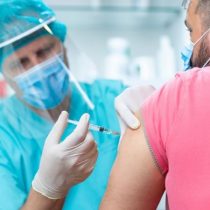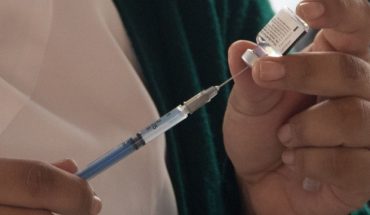
Safety will be the number one priority, experts insist. Plans will need to be approved ethically, as well as received approval from regulatory bodies before moving forward.
Human challenge studies offer a faster way to test vaccines because you don’t have to wait for patients to be exposed to a disease naturally.
Researchers would first apply controlled doses of the pandemic virus to find out how smaller a covid-19 infection could cause in volunteers between the age of 18 and 30.
These guinea pigs of human Indians, who would be infected with the virus through the nose and would be observed 24 hours a day, have the lowest risk of harm due to their youth and good health.
Thus, scientists would rehearse in them the vaccine they develop to see if it prevents infection.
One of the most advanced vaccine developments is the University of Oxford.
“My team has conducted human challenge studies safely with other respiratory viruses for more than 10 years. No study is completely risk-free, but colleagues in the Human Challenge Programme will be taking care to ensure that the risks are as risky as possible,” explained research director Dr Chris Chiu of Imperial College london.
Professor Peter Openshaw, another program researcher and director of the Human Challenge Consortium, said that purposely infecting volunteers with an identified human pathogen “is never taken lightly.”
He assured, however, that such studies were immensely informative.
“It is really vital that we proceed as quickly as possible towards effective vaccines and other treatments for covid-19.”
Hundreds of covid-19 vaccines are being developed worldwide and several of the most advanced vaccines are already in the final phase of trials, including the University of Oxford.
While some of these might get results and start being applied before the new study has a chance to start, researchers say their work would continue to be useful for comparative studies and knowing which vaccine works best.
Experts say several different vaccines, as well as effective treatments, will likely be needed to defeat covid. Vaccines and treatments will also need to be tested in the most at-risk populations, including the elderly.
The first stage of the human challenge project will be launched by a partnership between Imperial College London, a specialized and secure research unit at London’s Royal Free Hospital and a company called hVIVO.
After being exposed to covid-19, young volunteers will have to stay in a facility biosafe [que sigue estrictos protocolos de control de agentes biológicos] until they are no longer infected.
They will receive a financial refund for their time and will be monitored for more than a year after their participation in the study to control any side effects.
The association is receiving requests from volunteers on its ukcovidchallenge.com.
Volunteers will be monitored in a biosecurity environment.
Ethical dilemma
Deliberately infecting someone with covid-19 has an ethical dilemma, especially when there is no treatment to cure patients, although there are some who may make the disease less virulent.
Professor Julian Savulescu, an ethics expert at Oxford University, believes the essays are justifiable. “In a pandemic, time means lives. So far, more than a million people have died.”
“There is a moral imperative to develop a safe and effective vaccine, and to do so as soon as possible,” he said.
“Given what is at stake, it would be immoral not to conduct the challenge studies.”
Alok Sharma, Secretary of State for International Development, reaffirmed the support of the British government. “We are doing everything in our power to combat coronavirus, including supporting our best and most prominent scientists and researchers in their search for a safe and effective vaccine.”





